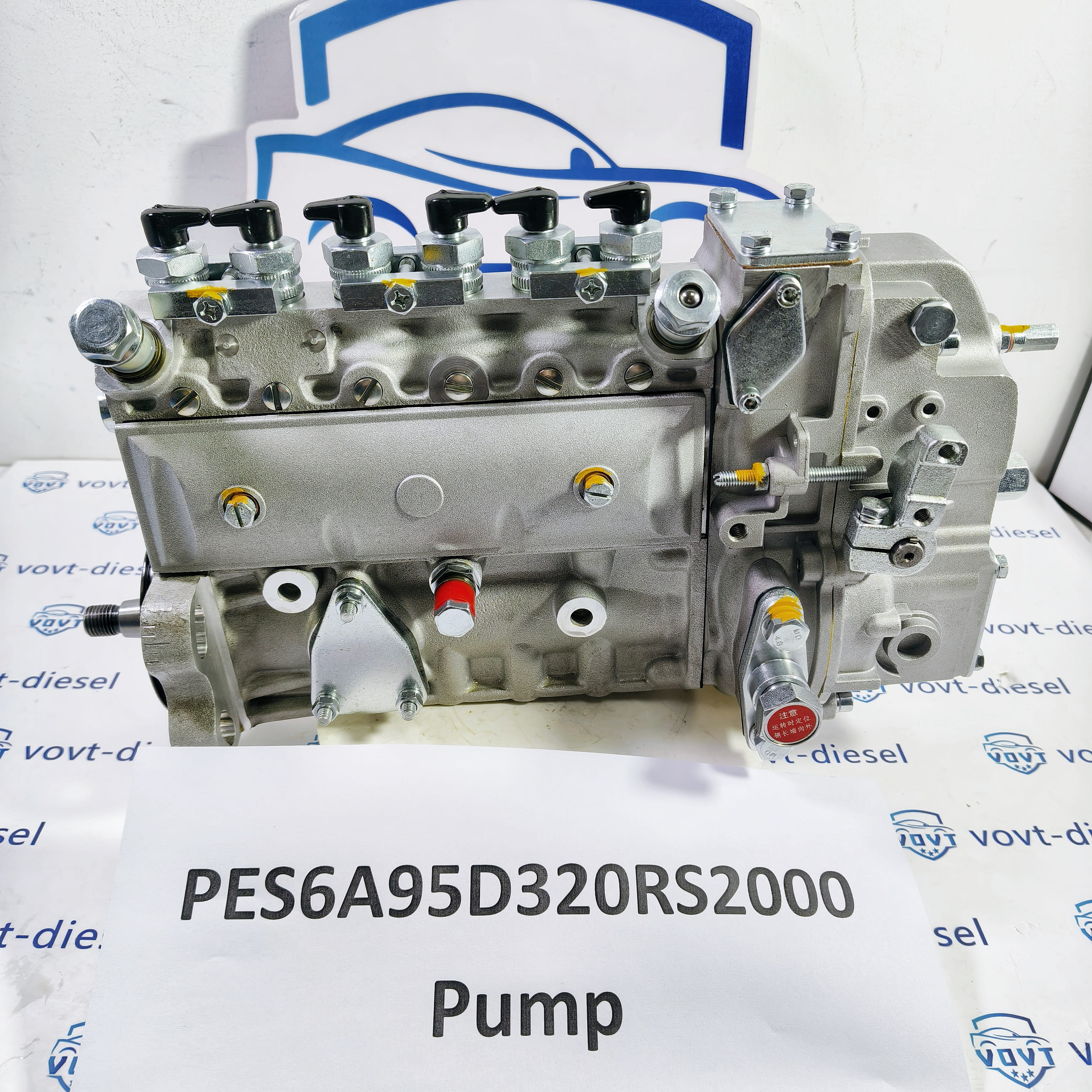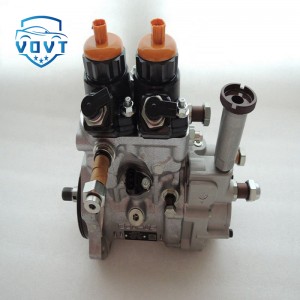Diesel Fuel Injection Pump PES6A95D320RS2000 Engine Auto Engine Part
products description
| Reference Code | PES6A95D320RS2000 |
| MOQ | 1 PCS |
| Certification | ISO9001 |
| Place of Origin | China |
| Packaging | Neutral packing |
| Quality Control | 100% tested before shipment |
| Lead time | 7~15 working days |
| Payment | T/T, Western Union, Money Gram, Paypal, Alipay, Wechat |
Research on Leakage Mechanism and Efficiency Improvement of Diesel Fuel Pumps
Abstract
Leakage in diesel fuel pumps is one of the primary factors that reduce volumetric efficiency and operational reliability. Understanding the leakage mechanism and developing effective improvement strategies are crucial for enhancing pump performance under high-pressure conditions. This paper investigates leakage pathways, analyzes influencing factors, and proposes efficiency improvement methods through structural optimization and advanced material application.
1. Introduction
Diesel fuel pumps play a vital role in modern common rail systems, ensuring stable delivery of high-pressure fuel to injectors. However, due to high operating pressures (often exceeding 200 MPa), leakage through clearances and sealing interfaces is inevitable. Excessive leakage leads to pressure loss, reduced volumetric efficiency, and increased energy consumption. Therefore, exploring leakage mechanisms and developing targeted countermeasures are essential to improving overall efficiency and durability.
2. Leakage Mechanism
-
Clearance leakage: Occurs between the plunger and barrel, where lubricating films are required to prevent wear but simultaneously allow fuel seepage.
-
Valve leakage: Imperfect sealing between the delivery valve and its seat causes backflow, leading to unstable pressure buildup.
-
Structural deformation: Under ultra-high pressure, elastic deformation of critical components enlarges clearance gaps, intensifying leakage.
-
Temperature effects: High operating temperatures reduce fuel viscosity, increasing leakage flow through micro-gaps.
3. Methodology
-
Numerical simulation: CFD combined with fluid–structure interaction (FSI) models was used to predict leakage behavior under different operating pressures and temperatures.
-
Experimental setup: A high-pressure test bench was employed to measure leakage flow rate, volumetric efficiency, and temperature rise under controlled conditions.
-
Parameter analysis: Effects of clearance size, surface roughness, material hardness, and fuel properties were systematically studied.
4. Results
-
Clearance sensitivity: Reducing radial clearance by 20% decreased leakage by 15% but required enhanced lubrication design to prevent seizure.
-
Surface finish: Improved polishing reduced micro-channel leakage, leading to a 7% increase in volumetric efficiency.
-
Valve optimization: Modified valve seat angles improved sealing effectiveness, lowering backflow losses by 10%.
-
Material application: Advanced coatings such as DLC (diamond-like carbon) enhanced wear resistance and maintained tighter clearances over prolonged cycles.
5. Discussion
The study highlights a trade-off between minimizing leakage and ensuring durability. While reducing clearance improves efficiency, it risks increased friction and wear. Optimized designs must therefore balance leakage suppression with lubrication reliability. Material improvements and advanced surface treatments offer promising solutions to simultaneously achieve efficiency and long-term stability.
6. Conclusion
Leakage is an inherent challenge in diesel fuel pumps, directly impacting efficiency and durability. By analyzing clearance leakage, valve sealing, structural deformation, and thermal effects, this research identifies key influencing factors and proposes targeted optimization strategies. Through structural refinement, advanced materials, and precision manufacturing, diesel fuel pump efficiency can be significantly improved, supporting the development of high-performance, low-emission engines.



















